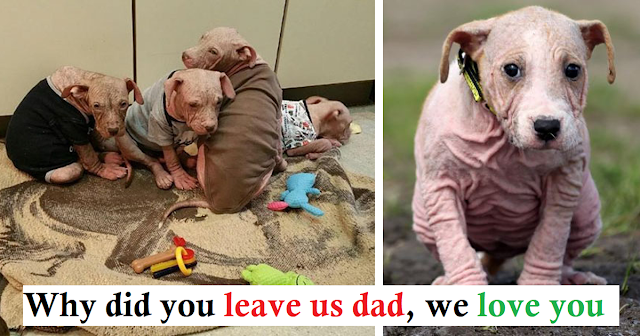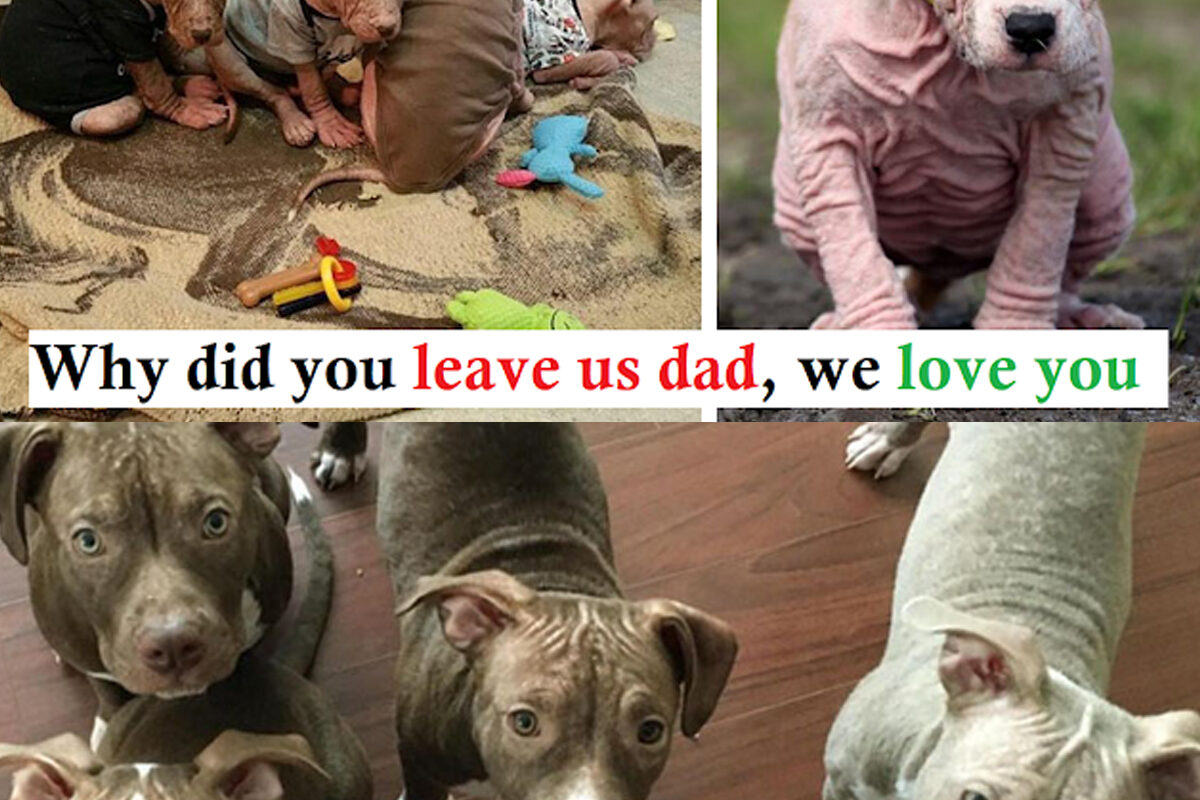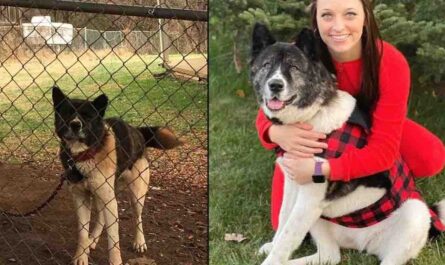
Kristina Rinaldi, government director of Detroit Dog Rescue (DDR) was astonished when she went to choose up 6 puppies from animal management. The uncared for pups had been found in a Detroit, Michigan, deserted dwelling. They’d extreme blisters throughout their our bodies and had been pink and hairless. Moreover, they seemed to be burning and had a temperature. Rinaldi instructed The Dodo, “After I say that these puppies had been really on hearth, they had been on hearth. “The temperatures had been excessive.”

The puppies’ lack of fur was attributable to a pores and skin situation referred to as mange. In my time as a dog rescuer, I’ve seen loads of instances, however this was the worst I’ve ever seen, mentioned Rinaldi.
Rinaldi hurried the puppies to the physician, however sadly, two of them did not make it and handed away en route. Relating to the opposite 4, We’re preventing an uphill battle, the vet remarked, Rinaldi recalled.
They acquired the right care whereas they had been there for round 12 weeks. They had been quickly ready for adoption into devoted endlessly houses.
BEST DOG TIPS
Routine and Structure: Establishing a consistent daily routine provides dogs with a sense of security and predictability. From meal times to exercise sessions and bedtime, sticking to a schedule helps regulate your dog’s biological clock and reduces anxiety. Consistency is key not only in their routine but also in your interactions and expectations. This means using the same commands and cues consistently, reinforcing positive behaviors, and setting clear boundaries. Dogs thrive on structure, and a well-established routine can contribute significantly to their overall well-being and behavior.
Patience and Understanding: Patience is a virtue when it comes to raising a dog. Understand that learning takes time, and every dog progresses at their own pace. Avoid frustration and impatience during training sessions, as this can lead to confusion and stress for your dog. Instead, approach training with empathy and understanding, breaking down tasks into smaller, manageable steps and celebrating each success along the way. Remember that dogs respond best to positive reinforcement, so focus on rewarding desired behaviors rather than punishing mistakes.
Environmental Enrichment: Dogs are intelligent and curious creatures who thrive on mental stimulation. Providing environmental enrichment is essential for keeping your dog mentally engaged and preventing boredom-related behaviors such as chewing or excessive barking. Offer a variety of toys, puzzles, and interactive games to challenge your dog’s mind and keep them entertained. Rotate toys regularly to maintain novelty and interest. Additionally, consider activities such as nose work, agility training, or obedience classes to provide mental and physical exercise while strengthening the bond between you and your dog.
Boundaries and Consistency: Setting clear boundaries and consistently enforcing rules is essential for maintaining harmony in your household. Dogs thrive when they understand their place in the pack and what is expected of them. Establish rules regarding behavior, such as not jumping on furniture or waiting for permission before eating. Consistency is key; enforce these rules consistently across all family members and visitors to avoid confusion. Remember to use positive reinforcement to reward compliance and redirect unwanted behaviors effectively.
Monitoring and Adaptation: As a responsible dog owner, it’s crucial to stay vigilant and proactive in monitoring your dog’s health, behavior, and overall well-being. Keep an eye out for any changes in appetite, energy levels, or bathroom habits, as these can be early indicators of underlying health issues. Regular veterinary check-ups are essential for detecting potential problems early and ensuring your dog receives the necessary medical care. Additionally, be prepared to adapt your care routines and training methods as your dog ages or experiences changes in their environment. Flexibility and attentiveness are key to providing the best possible care for your canine companion throughout their life.



